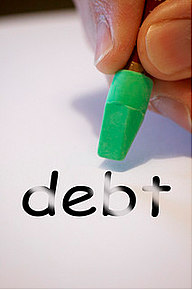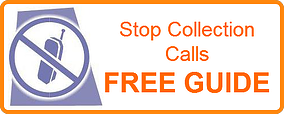 If you live in Texas, you have some unique laws that make debt settlement a great way to eliminate old credit card or other unsecured debts.
If you live in Texas, you have some unique laws that make debt settlement a great way to eliminate old credit card or other unsecured debts.
Due to various circumstances such as:
- Loss of employment
- Illness
- Death of Spouse
- Divorce
- or many other of life's challenges
...you may find yourself with too much debt and without the ability to make regular payments. When that happens, it doesn't take long before the DEBT COLLECTORS begin to start calling!
If this has happened (or is happening) to your, click here to learn how to STOP THE CALLS.
The debt collector may try to get you into a HARDSHIP PROGRAM! BUT BEWARE!
If it has been several months since you made your last payment, the debt collector may file a complaint and you would receive a summons.
If you owe the debt and cannot negotiate a settlement, the CREDITOR OR PLAINTIFF will be awarded a DEFAULT JUDGMENT.
In most states, the CREDIOR can get a WRIT OF GARNISHMENT that would result in an average of 25% of your net income being withheld from each paycheck until 100% of the debt is paid!
BUT NOT IN TEXAS!
Texas does not allow garnishment of wages in order to repay unsecured debt! This gives Texas residents a tremendous advantage and leverage in negotiating a settlement of their debts!
After being awarded a judgment, many creditors place a LIEN ON YOUR HOME.
This means that before you sell or transfer the property, the debt (PLUS INTEREST, FEES, ETC,) would have to be paid to release the title!
BUT NOT IN TEXAS!
Texas has the best HOMESTEAD LAWS in the United States.
Basically, your principle residence cannot have a creditor place a lien after a judgment for unsecured debt! This protects Texas Residents great protection and comfort!
With these two laws protecting your wages and homestead, residents of Texas can and should be able to negotiate very favorable settlements!
We have been helping Texas Residents for over 10 years and we can help you too!
Experienced Debt Settlement companies understand the advantages of debt settlement in Texas. Therefore, debt collectors are more willing to settle debts for less!
Actual Debt Settlement Examples: (Click on Link below to view)
photo by: Calsidyrose




 The amount of debt the average American has been estimated to be close to $8,000! If you get behind on paying your debts, get ready to hear from DEBT COLLECTORS!
The amount of debt the average American has been estimated to be close to $8,000! If you get behind on paying your debts, get ready to hear from DEBT COLLECTORS! You do not have to put up with abusive debt collection practices.
You do not have to put up with abusive debt collection practices.
 Your getting calls from a debt collector, but you do not believe you owe the debt.
Your getting calls from a debt collector, but you do not believe you owe the debt.  When your debts are out of control and you miss or get behind in payments, the creditor will do whatever they can to collect, including calling and calling and calling....
When your debts are out of control and you miss or get behind in payments, the creditor will do whatever they can to collect, including calling and calling and calling.... In most states, a wage garnishment for non-payment of debt is approximately 25% of your net, after-tax income.
In most states, a wage garnishment for non-payment of debt is approximately 25% of your net, after-tax income.
 If a debt collector contacts you and claims you owe a debt, how can you make them prove that you still owe it?
If a debt collector contacts you and claims you owe a debt, how can you make them prove that you still owe it? you hundreds of dollars!
you hundreds of dollars!


